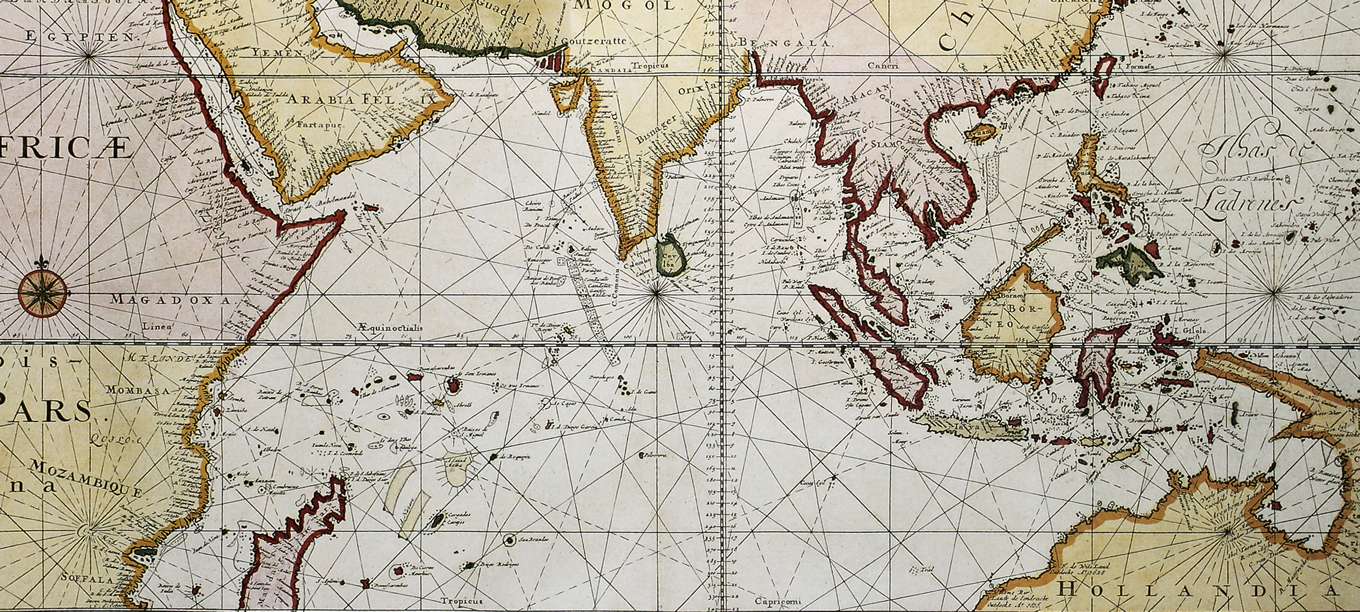
"Life can only be understood backwards; but it must be lived forwards."
- Søren Kierkegaard

- Søren Kierkegaard
South Asia and the Indian Ocean form a vast area which gave birth to an array of varied cultures based on the huge interactions between the shores, in terms of material as well as religious and cultural goods. In the Indian Subcontinent, there was a space that was often quoted in the narratives related to the origin of the communities: Sindh. Today a province of Pakistan, the very name of Sindh comes from the Sanskrit Sindhu, the River, which will give the words Hind in Arabic, thus Hindu, and later on India. Originally, the name of Sindh was given to the main part of the Indus Valley, and in such an arid country, the River was life, and as the Swiss scholar Gilbert Etienne says, this area was a gift from the Indus, paraphrasing Herodotus who said Egypt was a gift from the Nile.
The Third Khoja Studies Conference aims to explore how Sindh was represented in the making of the different religious communities of the region, including Muslim, Hindu, Buddhist, Sikh, Jain, Parsi and others. Some communities were historically born in Sindh, while other were not, but for a number of reasons, they incorporated Sindh in their mythical narrative of origin. For example, the official narrative related to the birth of the Khoja community, as extracted from ginans attributed to Pir Sadr al-Din (14th C.), clearly claims that Sindh, exactly a place named Kotri on the Indus River, was the cradle of the making of the Khojas as a community. Other groups claim to be of Sindhi origin, such as the Jarejas, but were compelled to migrate to Gujarat, where they ruled Kutchch and the Western part of Kathiawar for centuries. Lohanas, for instance, were arguably from Punjab, but they were ‘sindhized’. Furthermore, focussing on Sindh is an innovative way to reflect on the issue of interactions between religions. The Hindu epic of Mahabharata contains mention of Sindh. Ismaili and Sufi Muslims started their proselytism in Sindh. Beyond Islam and Hinduism, Sindh was also a cradle for Buddhism, Jainism, as well as the Udasi branch of Sikhism.
The conference aims to address these questions: Was Sindh working as a matrix in the making of communities? When they refer to Sindh, is it about a mythical Sindh, and in this case, what was the benefit to refer to it? Or was it included in a process of searching for roots in a ‘real’ territory, as if the belonging to a soil was necessary to make a community? How did Sindh host a wide range of communities with syncretic ideologies and practices? These and similar questions will be examined by leading scholars of different communities under study, using data ranging from devotional literature to monuments.
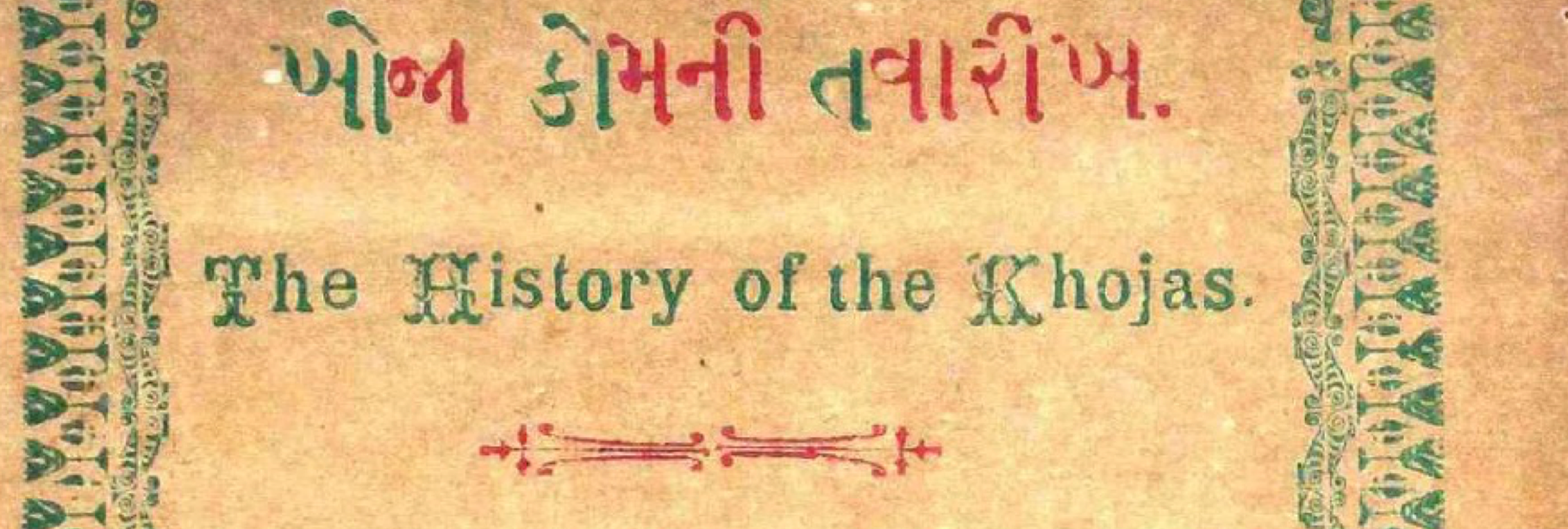
Florida International University,
Frost Museum, 10975 SW 17 th Street,
Miami, FL 33199
Thursday, 4 May 2023
9:00 to 9:30 Welcome and registration
9:30 to 10:00 Introduction (by Hasnain Walji)
10:00 to 10:45 (Panel introduction by Iqbal Akhtar, Chair: Kumail Rajani)
10:00 to 10:15 Tacit Knowledge and Entrepreneurship: Oral Histories of the Artisans of Kachchh,
presenter: Chhaya Goswami (Somaiya Vidyavihar University)
10:15 to 10:30 Disconnection and Connection: Merging Identities and Histories and Belonging in
Thar Desert, presenter: Vikram Ghamwani (Heidelberg University) - online
10:30 to 10:45 Diffusion of Rosewater, Religion, and Culture from Persia to Western India: Tracing
the Cultural History of Ismaili Khoja Traders in the Seventeenth Century, presenter:
Erum Hadi (St. John's University)
10:45 to 11:30 Q & A
11:30 to 13:00 Lunch
13:00-14:00 Panel discussion. Topic: Trade in Indian Ocean and Entrepreneurship
Panellists: Chhaya Goswami, Hasnain Walji, Iqbal Akhtar and Iqbal Dewji
Question: 1. In the context of early 19th-century trade in the Indian Ocean, how did Indian merchants and traders adapt to the evolving economic landscape and how did their trading activities contribute to the development and growth of the region at that time?
Question 2. What factors contributed to the omission or underrepresentation of the significant role played by Indian traders in the historical narratives of East Africa, and how can a more comprehensive understanding of their contributions help in reevaluating the historical narrative and fostering a deeper appreciation of their trials, tribulations and triumphs?
14:00 to 14:30 Tea/Coffee
14:30 to 15:15 Breakout session (4 groups)
15:15 to 16:00 Concluding ideas and roundup for the day
16:00 to 17:30 Visiting Frost Museum
17:30 Pickup from the conference venue and moving towards dinner
18:30 Dinner
Friday, 5 May 2023
9:00 to 10:00 (Panel introduction by Michael Boivin; Chair: Matthew Cook)
9:00 to 9:15 Why are Sindhis Called Multanis in Calicut?, presenter: Anjali Roy (IIT Kharagpur)
9:15 to 9:30 Sindh without Sindhu: The Making of a Place and its People, presenter: Trisha
Lalchandani (CEIAS-EHESS) - online
9:30 to 9:45 Making of Sami Community in Sindh, presenter: Sindhri Saba (CEIAS-EHESS) -
online
9:45 to 10:00 The Sindhi Meghwars at Crossroads: Identity versus Alterity, presenter: Mohan
DevRaj Thontya (independent scholar)
10:00 to 10:30 Tea/coffee
10:30 to 11:30 Q & A
11:30 to 13:00 Lunch
13:00 to 14:00 Panel discussion Topic: Situating Khoja Studies within the study of Social Sciences Panellists: Michael Boivin, Shiraz Hajiani, Samira Sheikh, Liyakat Takim
Question: 1. Where does Khoja Studies fit in within larger disciplines, such as Islamic Studies and ethnographic research?
Question 2. How do we generate greater academic and community interest in the work to make it more sustainable as a project moving forward?
14:00 to 15:00 Breakout session (4 groups)
15:00 to 15:30 Afternoon tea
15:30 to 17:00 Concluding plan for publication, public engagement and future projects
17:00 to 18:00 Networking
18:00 to 20:00 Visit to Buddhist Temple followed by dinner
End of the conference
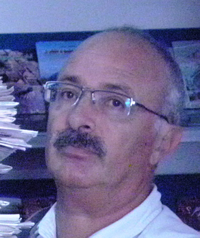
Michel Boivin is Senior Research Fellow at the Centre for South Asian Studies and he teaches Historical Anthropology of Muslim Societies in Colonial and Postcolonial South Asia at the School of Advanced Studies in Social Sciences (EHESS, Paris). He also supervises a number of master and PhD students, at EHESS as well as at the University of Karachi where he is external examiner for PhD. In 2011, he has founded the Centre for Social Sciences in Karachi (CSSK), a French NGO whose aim is to foster the studies in Social Sciences related to Pakistan and South Asia.
Michel Boivin works on the construction on modern knowledge in the context of colonial and postcolonial South Asia, through the emergene of new social classes. Focussing on the Sindhicate area, he scrutinizes how the vernacular was constructed both in Muslim and Hindu societies before and after partition, in Pakistan as well as in India. He has authored about one hundred academic papers, and he has edited and published twelve books. The last one published in French is title Pakistan: Anthropology of an Islamic Republic (Téraèdre, Paris, 2015). In English, he has recently published Historical Dictionary of the Sufi Culture of Sindh in Pakistan and in India (Karachi, OUP, 2015).
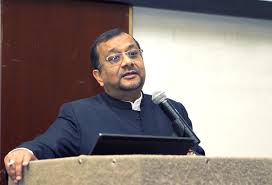
Dr. Hasnain Walji is a Co-Chair of the Khoja Heritage Project of The World Federation of KSIMC. He is an educator, historian, author, and an interfaith activist.
As a dedicated oral historian, for the past 30 years he has been researching and documenting the socio-religious history and evolution of the Khoja Shia IthnaAsheri Community. This has culminated in the production of a a groundbreaking anthropological documentary "The Khojas - A Journey of Faith" that spans the past 600 years of the Community's history. Hasnain has also served as Secretary General, Vice-President and as President of The World Federation of KSIMC and is the founding director of the Mulla Asghar Memorial Library and Resource Center in Toronto which houses a rare collection of over 100 manuscripts on the history of the Khojas in Gujarati and Khojki. He has authored 26 books on naturopathic medicine that have been translated from English to Chinese and other European languages. He has travelled the world in pursuit of his passion for increasing interfaith understanding in a quest to make this world a better place for his six grandchildren.

Dr. Iqbal Akhtar is an assistant professor with a dual appointment in the departments of Religious Studies and Politics & International Relations in the Steven J. Green School of International and Public Affairs (Florida International University). He completed his doctorate at the University of Edinburgh’s New College School of Divinity. His current work explores the origin of the Khōjā peoples in the Subcontinent through extant oral traditions known as the kahaṇī in Sindhi, Gujarati, and Hindustani.
He teaches both undergraduate and graduate courses as well as independent studies which include but are not limited to: Islamic Political Thought, Advanced Interpretations of the Quran, Voice of the Prophet, Islamic Faith and Society, Women in Islam, and Islamic Mysticism (Sufism). He is the research director of the Western Indian Ocean Studies programme.
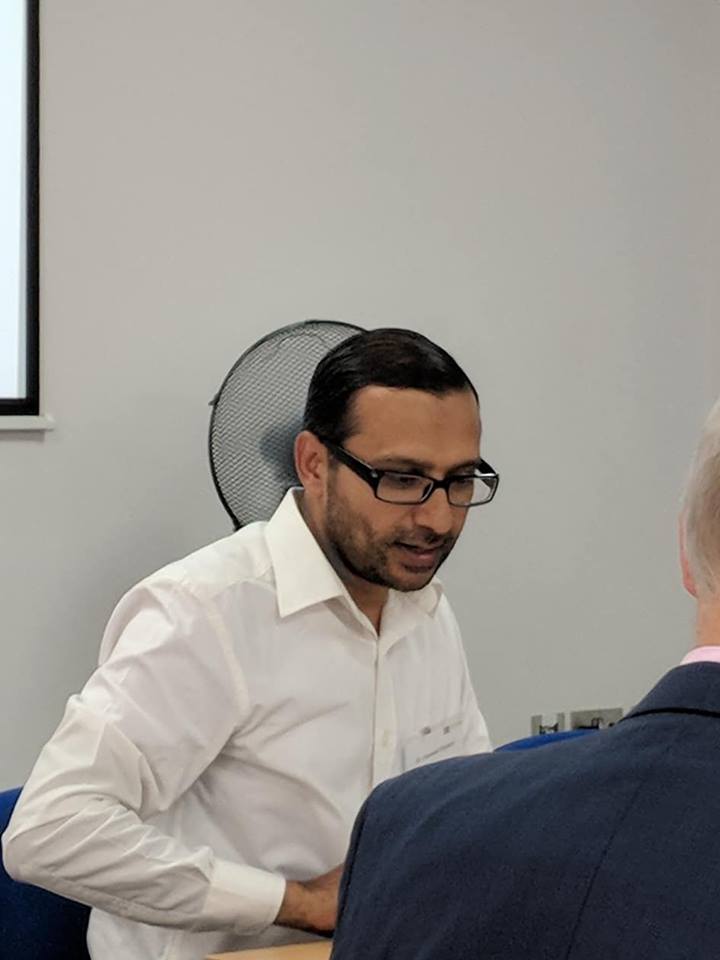
Kumail Rajani is a Postdoctoral Research Fellow in Islamic Studies at the Institute of Arab and Islamic Studies, University of Exeter. He works on the Law, Authority and Learning in Shiite Islam project, an advanced award (no. 695245) funded by European Research Council. Though primarily focused on the origins and development of hadith corpora, his research includes Islamic law, legal theory, and Shiʿi studies more broadly. He recently published an article entitled “Between Qum and Qayrawān: Unearthing early Shii ḥadīth sources” (BSOAS 84/3, 2021). He also edited The Sound Traditions: Studies in Ismaili Texts and Thought (Brill, 2021) and co-edited Shiʿite Legal Theory: Sources and Commentaries (forthcoming, 2022). He is currently working on converting his PhD (Making Sense of Ismaili Traditions: The Modes and Meanings of the Transmission of Ḥadīth in the Works of al-Qāḍī al-Nuʿmān (d. 363/974), Exeter) into a monograph, among other pursuits. Rajani spent a number of years in Shiʿite seminary (Ḥawza) of Qum studying and teaching classical Islamic texts of ḥadīth, fiqh and Islamic legal theory. Rajani is the recipient of Post Doctoral Writing Fellowship from British Institute for Libyan and Northern African Studies for one year (2022) as well as British Academy Postdoctoral Fellowship for 3 years (2023-2025).
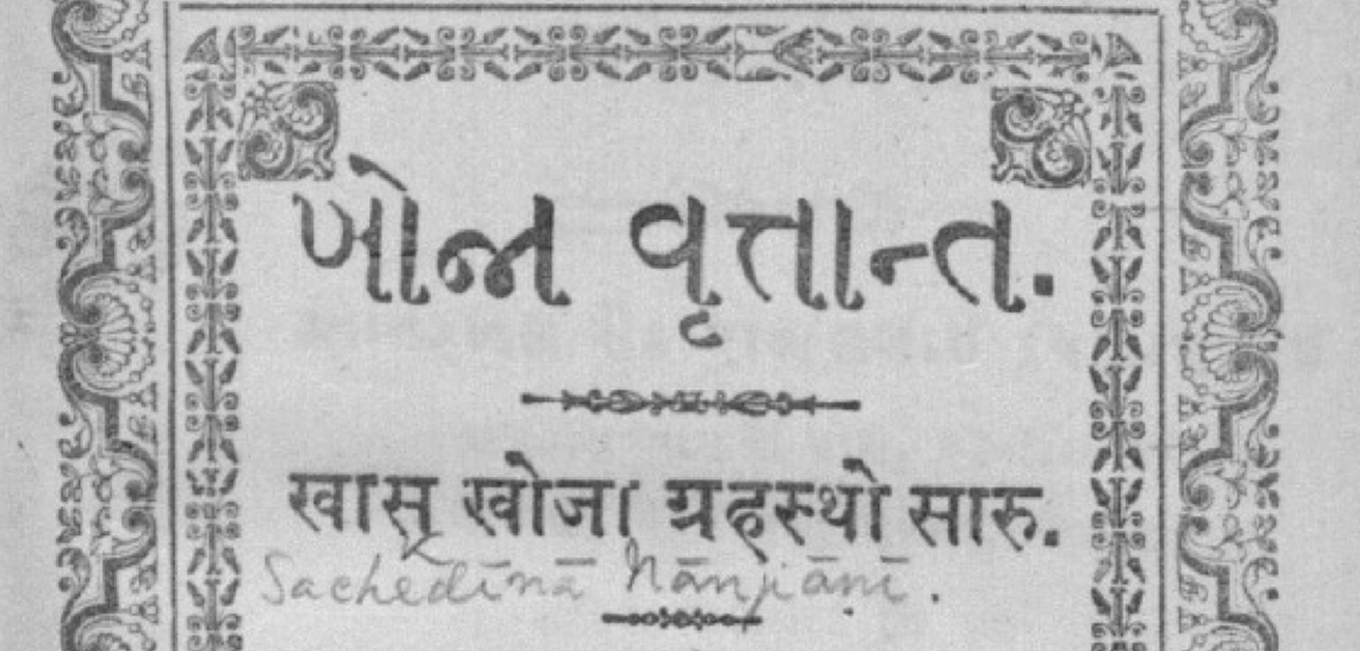

The World Federation was established in 1976. Its aim was to unify the disparate communities of the Khoja Shia Ithna Asheri community throughout the world under its umbrella. The World Federation recognised the needs and growth of the newly-settled Khoja Shia communities in the West, namely in the UK, Europe, USA, Canada, Dubai, and Australasia. The World Federation attends to the community’s financial, spiritual, and educational needs, and passionately follows its motto: ‘We exist to serve’. It is a registered charity in the UK, and is world renowned for its efficient and well-organised humanitarian and religious contribution to people throughout the world.
The World Federation of KSIMC works in the areas of International Relief & Development, Islamic
Education, and Community Affairs, the last of which includes the Khoja Heritage Project.

The Department of Politics and International Relations at Florida International University combines traditional disciplinary strengths in political science with a multi-disciplinary approach to the study of international relations. The Department offers Bachelor of Arts degrees in political science and international relations, the Masters of Arts degree in international studies, and the Doctor of Philosophy in political science and international relations. Students can also pursue several combined degrees at the undergraduate or graduate level.
Faculty and graduate students conduct research that spans a number of geographic regions
including North America, Latin America, Europe, the Middle East, Sub-Saharan Africa, Central
Asia, and East Asia. Thematically, the Department offers courses in the five traditional
political science subfields of American politics, comparative politics, international politics,
and political theory. Faculty and students also carry out research that transcends traditional
boundaries.

The EHESS is made up of over 47 research centres, 37 of which are shared with the Centre national de la recherche scientifique. It nevertheless does not constitute a research institute in the conventional sense of the word. Life at the school is centered on research training in which students work alongside experienced researchers, a perspective from which they gain privileged access to the mechanics of research in progress. The school can boast of an unparalleled range of research seminars, programs and publications, all of which embrace an interdisciplinary and multidimensional approach. It accordingly places a particular emphasis on area studies and it is a key aspect of school policy to actively promote conversation between the social sciences and other sciences, in particular the life sciences, as well as the arts.
Life at the EHESS is driven by its 300 plus tutor-researchers and 500 pure researchers based in its multiple research centres, in collaboration with over 450 technical support staff and 3000 enrolled students, and is supported by a consolidated budget of 40 million euro. The school also places great emphasis on its international agenda, maintaining links with a vast constellation of universities around the globe. It invites each year 150 foreign teachers to enrich its research activities and approximately one half of its students come from outside of France. The resources it offers to those pursuing doctoral and post-doctoral studies, as well as the number of publishing researchers based at the school, mark it out as a key hub for research in the social sciences in Europe.

The Institute of Arab and Islamic Studies is one of the foremost academic institutions in the UK offering research and taught degree programmes in a wide range of areas within the field of Arab, Middle Eastern, and Islamic Studies. We offer Arabic and Middle East languages as well as comprehensive education in the literatures and cultures of the Arab world and Middle East, the history, politics, economies, societies, and anthropology of the region and almost every aspect of Islamic studies from medieval to modern Islam. A number of dedicated research centres and links with other subject areas provide you with an opportunity to branch out into other disciplines and areas of study, as well as reinforcing the teaching you receive through cutting-edge research and engagement with current issues.
